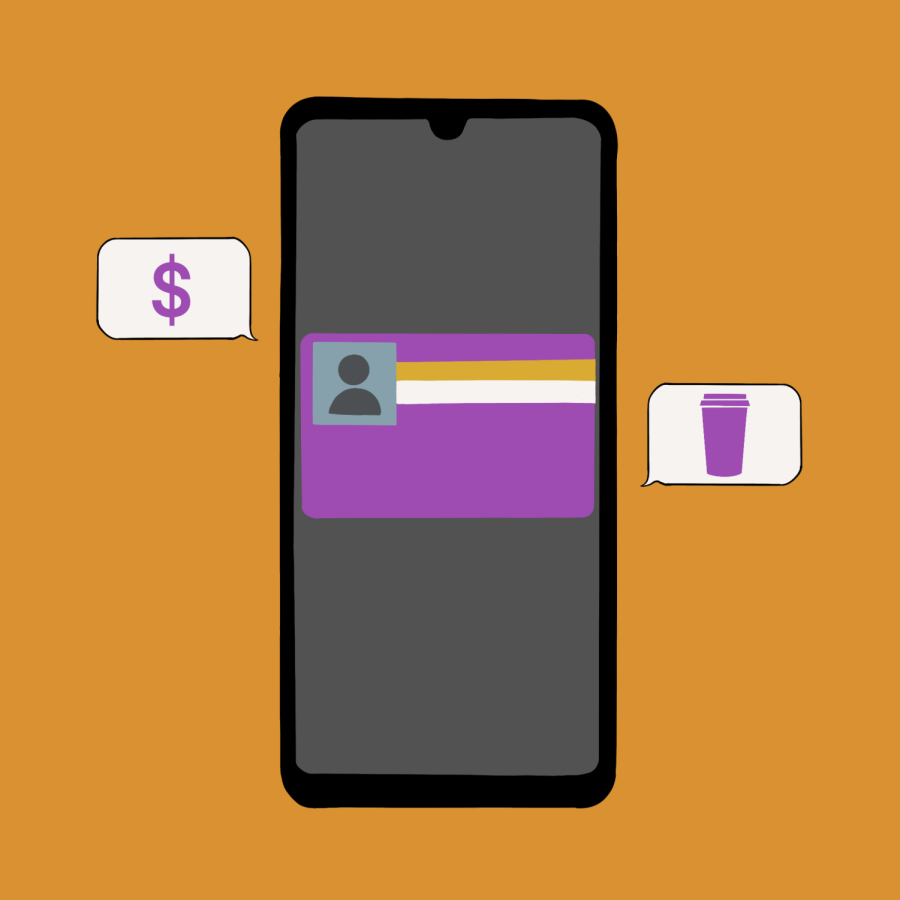UNA introduces new mobile credentials
November 17, 2022
University of North Alabama students and faculty can now open doors and move funds – and more – with their phones instead of their Mane Cards.
The new program, called Mobile ID, debuted Nov. 2 after three years of development, said Linda Brocato, UNA Mane Card manager.
Brocato said that she has advocated for moving to mobile credentials for years.
“When I became the manager of Mane Card, we changed out our readers to go to a chip card with the intention of going to mobile credentials,” said Brocato. “Once we got the ball rolling, we didn’t realize that we had to have multi-factor authentication, so once we realized that, we had to back off since the university didn’t have it yet. Transact is our software company, and they were really pushing for schools to go mobile. Once we got Duo, which was within the last year, we got the ball rolling again. We’re excited that we finally have it now.”
Before the official change to mobile credentials, the software needed to be tested. Resident Assistants and certain faculty members were given the option to be a part of the trial run for Mobile ID. During this process, the participants tested the system and reported any problems or difficulties, as well as any changes that could be made.
The new Mobile IDs work almost exactly like Mane Cards, holding the same information and performing the same functions. Students can now use their phones to get access into facilities and dormitories on campus instead of using their Mane Card. In addition, all funds are transferred to their Mobile IDs, meaning that students can tap their phones to complete any monetary transaction that the original Mane Card could.
“The main thing is convenience,” said Brocato. “Students and employees will have their phones with them. It keeps Mane Cards from getting lost and people from having to pay $15 for a replacement. You don’t lose a phone like you do a card. You keep up with your phone a lot easier. It’s also convenient to not have to dig for a card when you’re trying to make a transaction or trying to get in a door.”
When Mobile ID was unveiled, fliers and information cards around campus informed students on how to make the switch. To change from a physical card to mobile credentials, students must go through the Transact application. Once a Mane Card has been entered into Transact, the card can be added to the students’ Apple Wallets or Google Wallets.
After students change over to mobile credentials, they will not be able to use their physical Mane Card. Once a week, the system searches for duplicates – students who have both a physical and virtual Mane Card – and cuts the physical duplicate off, rendering the card unusable.
“The reason they don’t want them to have a card and a phone is because it bogs down the system even more,” said Brocato. “Also, you can give your friend your card for meals or door access. You’re not going to give your phone to people as easily as you will a card. You can get it on your Apple Watch, too, but that’s it.”
Ashley Grace Laney, an Admissions Counselor at UNA, was one of the first to test Mobile ID, starting in early September.
“My favorite part of mobile credentials is the convenience and accessibility,” said Laney. “I think readers would want to know about the easy access to important information like balances of dining dollars, Mane Market meals and student profile information.”
While testing the system, some RAs had similar feedback: overall, they enjoyed how easy using a smartphone for door access and transactions is. However, concerns arose surrounding the occasional inaccuracy of card readers and the possibility of phones running out of battery.
For Apple devices, there is a five-hour window after the phone dies when students can still use their Mane Cards because of an express mode that is automatically activated. Unfortunately, Android users are not so lucky. If their phones die, they must find other means to enter buildings, which could be a challenge when returning to a residence hall late at night.
“We’ve found that it’s going to be kind of the same as if you lose your card,” said Brocato. “You’re either going to call the RA on call or someone else to let you in. We all don’t like our phone to be dead, so that’s going to happen some, but I don’t think it will happen a time or two, and then they’ll realize that they’d better make sure it’s charged.”
After the official release date of Mobile ID, some students have been on the fence about changing over. Many expressed worries over losing access to their physical card, as it could be useful in emergency situations. Most concerns center around the possibility of phones going dead or not working on particular readers.
Brocato affirmed that any technical issues will be fixed in as timely of a manner as possible through Transact’s support team. Moving forward, she hopes to address problems that students may have and improve the functionality of Mobile ID.
In future years, incoming students will have the option to get either a physical Mane Card or sign up for mobile credentials. This will help the university to cut back on unnecessary costs and be more environmentally friendly.
“I think it’s going to be a great thing,” said Brocato. “We’re really excited to be at this point after all this time.”



